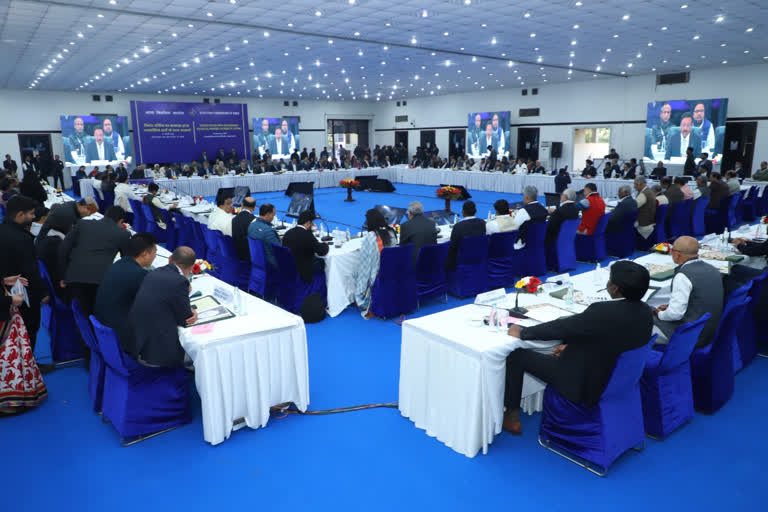New Delhi: The Election Commission of India on Monday held a meeting with the representatives of eight National Parties and 40 regional parties on its proposal to introduce remote Electronic Voting Machines that would aid domestic migrants to vote away from their home constituency, which has been criticized by most of the parties.
While some parties saw the demonstration of the prototype remote electronic voting machine (RVM), others stayed away from it, saying technological interventions can wait before a consensus is developed on legal and administrative issues. Sources in the poll panel said some political parties requested for demonstration of Remote Voting Machine in the states also.
While the poll panel had invited eight national and 57 state parties recognised by it, 40 state parties attended the meet. Representatives of all eight national parties attended the consultation. The parties agreed with broad objectives of every effort to include non-voting electors in the election process in the stakeholder consultations on electoral issues which was held after a gap of five years. They also suggested more such discussions on a regular basis in future.
On the request of the parties, the poll panel extended the date of submission of written views by them on various issues on RVM to February 28. The earlier date was January 31. Representatives from political parties later said the EC assured that it would move ahead with remote voting only after a consensus emerges between the stakeholders.
Also read: 'Very sketchy': 16 parties reject EC proposal of remote EVM a day ahead of demonstration
"No opposition party wants to see the demonstration of a remote voting machine (RVM). First the issue of the need to have such a machine should be settled," senior Congress leader Digvijaya Singh told reporters after participating in a meeting of political parties convened by the poll body to demonstrate the working of an RVM.
The former Madhya Pradesh chief minister said he felt that there would be no RVM demonstration till there is a consensus on having one. No political party is prepared to see the demonstration, he said. "The idea of RVM is not acceptable," Singh said, adding that the commission should address concerns about electronic voting machines raised by eminent citizens of the country.
